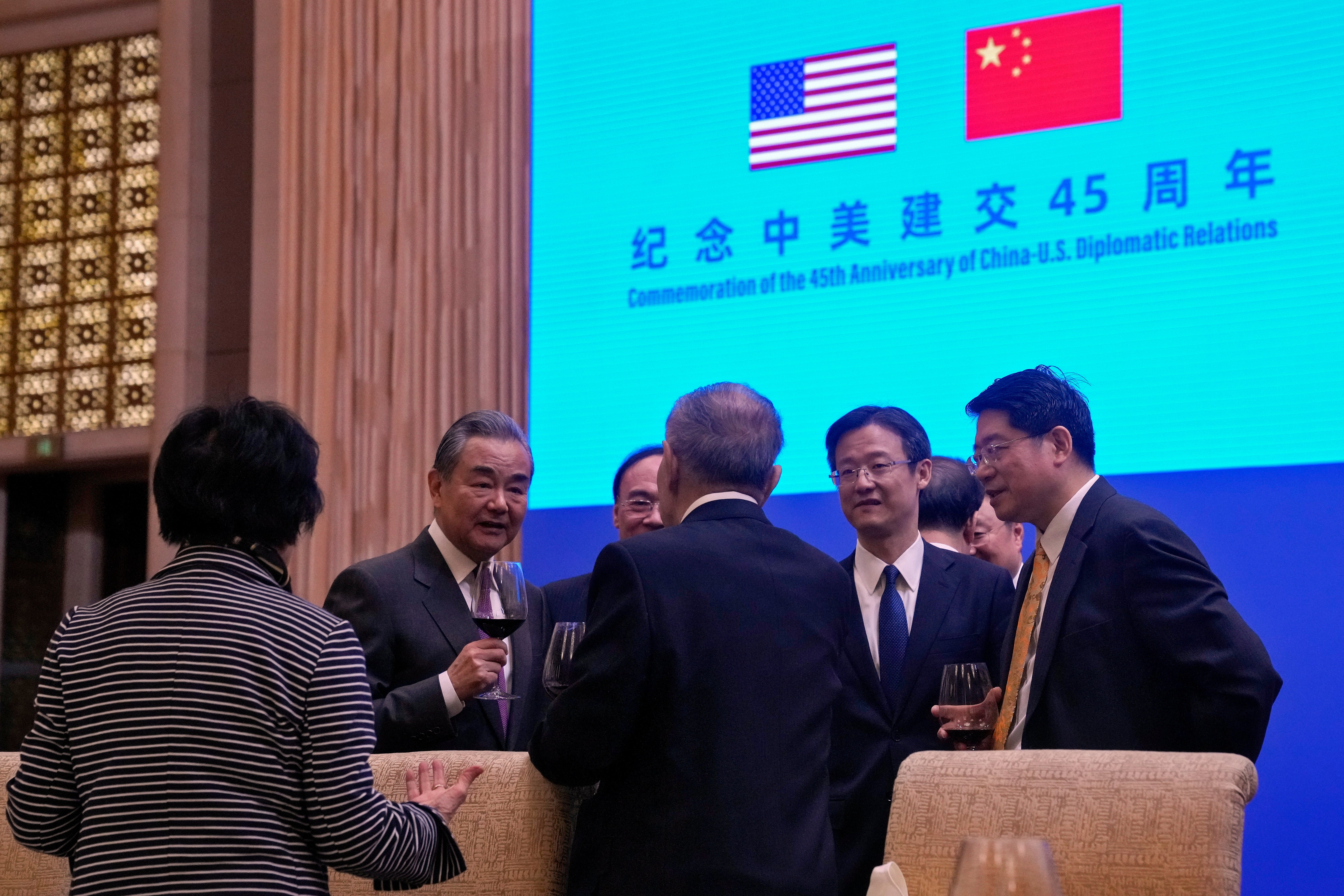US biotech company halts sales of DNA kits in Tibet, as lawmakers mull more export controls on China
Thermo Fisher, an American biotech company, has halted sales of its DNA testing products in Tibet, amid concerns that its products might have assisted the Chinese government in a surveillance campaign in the ethnic region

A U.S. biotech company has halted sales of its DNA testing products in the Chinese ethnic region of Tibet, as lawmakers mull export controls to keep Beijing from using American products to conduct massive surveillance of its own citizens.
Thermo Fisher, based in Waltham, Mass., said in a statement that it made the decision in mid-2023 to cease sales of human identification products in Tibet “based on a number of factors.” It did not specify the “factors." The news site Axios first revealed Thermo Fisher’s decision this week.
The move by the biotech company, which in 2019 took similar measures in the ethnic region of Xinjiang, came at a time of concerns on the Capitol Hill over Beijing's human rights record. About a year ago, a bipartisan group of lawmakers demanded to know if the company was certain its equipment was not used to aid or abet rights abuses in China, following reports that the Chinese government had been collecting DNA data from hundreds of thousands of Tibetans. Beijing faces criticisms for its rule in Tibet, after the Dalai Lama, the spiritual leader for most Tibetans, was forced to flee in 1959 when a revolt failed.
China has denied the allegation. “It is groundless accusation saying that the Chinese government is collecting DNA data from ethnic minorities in Xinjiang and Xizang to strengthen surveillance,” said Liu Pengyu, spokesman for the Chinese Embassy in Washington, referring to Tibet by its Chinese name of Xizang. “China is a country under the rule of law, and the privacy of Chinese citizens is fully protected by law, regardless of their ethnicity.”
The company's action reflects the intensifying scrutiny U.S. firms face when doing business with China. The Biden administration says it looks to protect national security and press China on human rights while maintaining cooperation and keeping tensions from spiraling out of control. It says it seeks to “responsibly manage” the U.S.-China economic relationship.
The administration last August restricted U.S. investments in sensitive technologies that could boost China's military powers, following a ban on most advanced computer chips. Treasury Secretary Janet Yellen has said the U.S. will use its tools to protect human rights, and the U.S. already bans import of goods made with forced labor in the ethnic region of Xinjiang in China's northwest.
Beijing argues that Washington is using the human rights issue to suppress China’s growth.
“China opposes the relevant parties politicizing normal economic cooperation and stopping cooperation with China based on groundless lies,” Liu said.
In a January 2023 response to U.S. lawmakers, Thermo Fisher said it was confident that its products were “being used for their intended use in Tibet, namely police casework and forensics.” In its statement emailed to the AP on Thursday, Thermo Fisher said the sales of its human identification products in Tibet had been “consistent with routine forensic investigation in an area of this size.” It declined further comment.
Lawmakers and rights advocates applauded Thermo Fisher's decision to pull out of Tibet but urged the company to do more.
“I remain concerned that the continued sale of these products throughout the rest of China will continue to enable the CCP’s techno totalitarian surveillance state,” said Rep. Mike Gallagher, chair of the Select Committee on the Chinese Communist Party. "Thermo Fisher needs to immediately stop the sale of all DNA collection kits to all of China.”
Rep. Chris Smith, chair of the Congressional-Executive Commission on China, said the decision by Thermo-Fisher was “a long-overdue step to remove the company from further complicity in egregious human rights abuses.”
The U.S. Commerce Department should continue to make “more systematic efforts” to prevent American companies from working with China's police and security apparatus in Tibet, Smith said.
“There is much more work to be done to starve the globe’s dictators and authoritarians of the PRC’s technological tools of repression — particularly when abetted by U.S. corporations," the congressman said, referring to China by its official name, the People's Republic of China, or the PRC.
Maya Wang, interim China director at Human Rights Watch, praised Thermo Fisher for its action but said, “This is not enough," and the company should do more to ensure its products sold elsewhere in China are not contributing to mass surveillance.
Subscribe to Independent Premium to bookmark this article
Want to bookmark your favourite articles and stories to read or reference later? Start your Independent Premium subscription today.
